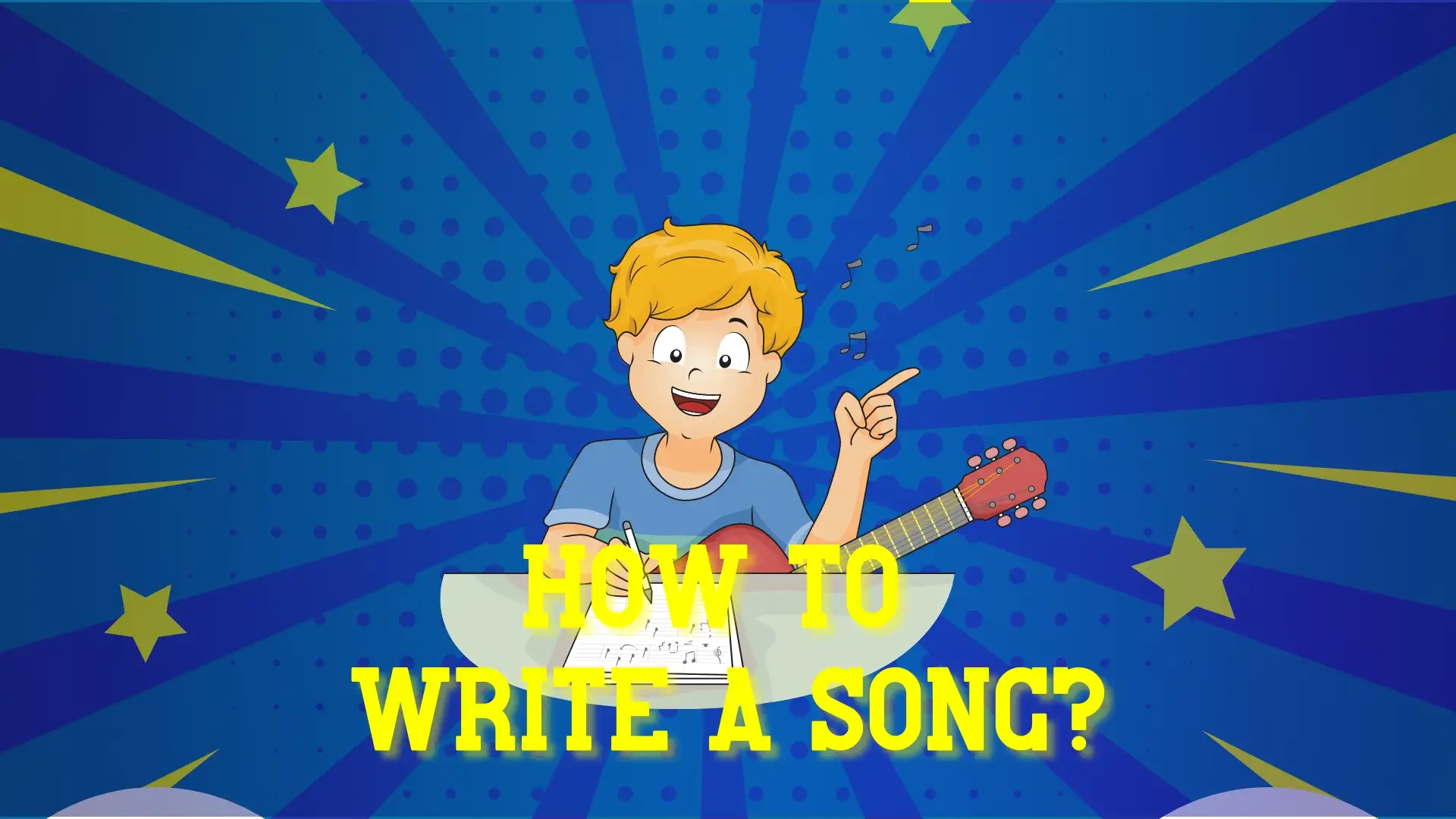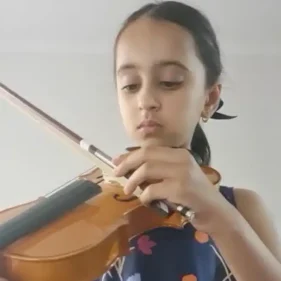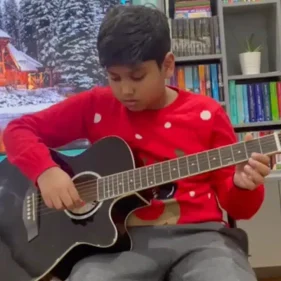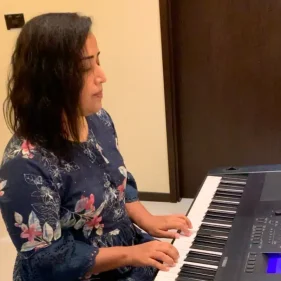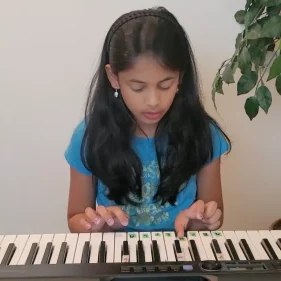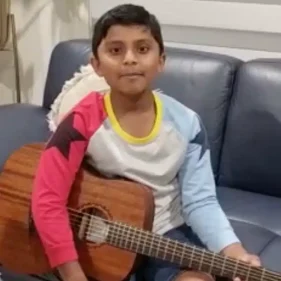Music possesses the ability to forge connections, between people, evoke emotions and narrate compelling stories. Have you ever listened to a song? Pondered, “I wish I could craft something impactful as that”? Well, the good news is that you absolutely can! Songwriting is an expressive art form that holds no barriers; it can be. Mastered by anyone. In this blog post we will provide you with a guide on how to write a song on your own starting from the spark of inspiration all the way to crafting a refined masterpiece.
How to Write a Hit Song?
Writing a hit song involves capturing the listener’s emotions and creating a memorable experience. Start with a compelling melody and catchy lyrics that resonate with universal themes. Focus on relatable stories and use vivid imagery. Build a strong chorus that hooks the audience.
To commence your songwriting odyssey, remain receptive to the world around you. Be fully present and attuned to your surroundings. Immerse yourself in songs, engage with poetry or immerse yourself in natures embrace during a walk. Inspiration often strikes unexpectedly; therefore, it is crucial for you to be prepared to capture those moments when they arise.

Compose with your heart as the pen, weaving emotions into melodies, and let the rhythm of your soul guide the ink onto the paper.
Tips and Tricks For How To Write a Song
Start by creating a central theme or message for your song. Experiment with different song structures, like verse-chorus-verse or storytelling formats. Utilize metaphors and vivid imagery to captivate listeners. Don’t shy away from rewriting and refining your lyrics. Collaborating with others can offer fresh perspectives. Let’s learn this more in detail below:
Seek Out Your Muse
Every extraordinary song has its roots in inspiration. It might stem from an experience, an emotion, a captivating story or even something as simple as an irresistibly catchy melody lingering in your mind.
Define Your Central Theme
Once inspiration has found its way, into your soul it becomes essential to determine the theme of your song. What story do you yearn to tell? What message burns within you waiting for expression? The chosen theme shall serve as the guiding light illuminating both your lyrics and melody throughout this endeavor.
It could encompass emotions, like love, heartbreak, adventure, social issues or anything that deeply resonates with you. The stronger your passion for the chosen theme, the genuine and relatable your song will be.
Crafting a Catchy Melody
The melody serves as the foundation of your song. It’s the part that people hum or sing along to. You don’t need to possess skills for creating a catchy melody. Simply explore notes and chord progressions on an instrument of your preference—be it a guitar, piano or even just using your voice. Embrace the freedom to make mistakes since some of the melodies are often discovered through trial and error.
Composing the Lyrics
Writing song lyrics is an opportunity for expression. The key lies in being sincere and genuine, in your words. Allow your chosen theme to guide you as you let your thoughts and emotions flow freely. For writing a song lyrics first begin by jotting down your reflections, sentiments and ideas. Many songwriters find it beneficial to create a mind map or compile a list of words and phrases related to their theme. Then skilfully weave these words and ideas together in a way that tells your story.
Crafting the Structure of Your Song
Songs typically follow a structure incorporating verses and chorus and sometimes a bridge. Verses serve to progress the narrative while the chorus acts as the core of the song. A bridge can introduce a twist. Provide a fresh perspective. Experiment, with structures to determine what best suits your song.
Polishing and Revising
Once you have completed writing your song take a step back. Allow it some breathing room. Return to it later with a mindset. Pay attention to its flow rhyme schemes and word choices. Does it effectively convey the intended message. Evoke the desired emotions? Do not hesitate to make revisions or even rewrite sections if necessary.
Incorporating Musical Dynamics
Consider how you envision performing your song. Musical dynamics can significantly enhance its impact. You may experiment with variations in volume, tempo and instrumentation. Perhaps you desire a moment of intimacy followed by a crescendo. Play around with these elements to observe their influence on the mood of your song.
Practice and Live Performance
I hop this guide on how to write a song gives you a confidence to kickstart your writing journey. Remember that practice makes perfect. For using chords and music theory in songwriting. Dedicate time to rehearsing your song until you feel confident, in performing it. If you play an instrument focus on practicing both its melody and chords.
Make sure to work on your singing skills if thats something you’re interested, in for your performance. Afterward don’t hesitate to share your creation with the world. You can try performing at events recording your song or even sharing it with friends and family. The more you put yourself there and perform the confidence you’ll gain as a songwriter.
Happy Songwriting!
FAQs
How to write a song, where do I begin with?
Begin by expressing your feelings and personal experiences through poetry. Allow your heart to guide the rhythm and melody of your words.
How do I overcome writer’s block and generate ideas?
To overcome a block and find inspiration you can try engaging in freewriting exercises, switching up your surroundings, brainstorming or seeking out perspectives and new experiences.
Is there a specific songwriting process I should follow?
There is no formula for songwriting that works for everyone. You need to explore and discover what methods suit your creativity and inspiration the most.
What tools and resources do I need to get started?
To succeed it is important to have defined objective educational resources specifically designed to help you achieve that objective, appropriate tools or technology and a supportive network or guidance, from mentors.
Do I need to know music theory to write songs?
Understanding music theory is not necessarily a requirement for songwriting. It can significantly enrich your comprehension of composition, harmonies and structures. It opens up a range of possibilities for expression.

